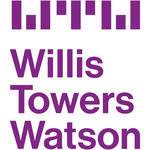Description

Alida

Willis Towers Watson Employee Engagement
Comprehensive Overview: Alida vs Willis Towers Watson Employee Engagement
Alida and Willis Towers Watson (WTW) Employee Engagement are solutions designed to improve employee engagement and feedback within organizations. Both have established their niches in the broader market of employee experience platforms, but they have different focuses and strengths.
a) Primary Functions and Target Markets
Alida
- Primary Functions: Alida, formerly Vision Critical, focuses on customer experience management, but it also offers tools for employee engagement under its larger umbrella of experience management solutions. The platform offers robust survey and feedback mechanisms, data analytics, and reporting features designed to gauge and improve employee engagement. It facilitates real-time feedback and provides actionable insights to enhance employee satisfaction and productivity.
- Target Markets: Alida serves a diverse range of industries, including retail, healthcare, financial services, and technology. It primarily targets medium to large enterprises looking for comprehensive experience management solutions that encompass both customer and employee insights.
Willis Towers Watson Employee Engagement
- Primary Functions: The employee engagement solutions from WTW are tailored to assess and enhance employee engagement through surveys, analytics, and advisory services. The platform helps organizations understand the drivers of employee engagement, track trends, and implement strategies to improve workplace culture and productivity.
- Target Markets: WTW primarily targets large organizations and multinational corporations, often those with complex organizational structures. It caters to sectors like finance, healthcare, technology, and manufacturing, where managing large workforces is crucial.
b) Market Share and User Base
- Market Share: Both Alida and Willis Towers Watson are significant players in the employee engagement market, though they differ in scale and breadth of service offerings. Alida might have a broader scope due to its customer experience roots, attracting companies looking for integrated solutions for both customer and employee feedback. WTW’s market share is more concentrated among large multinational corporations seeking expert-led strategies and insights.
- User Base: Alida is popular among companies that prefer self-service systems combined with advanced analytics for both customer and employee engagement. WTW boasts a strong user base among top-tier global enterprises seeking more personalized, consultant-driven engagement solutions focused on strategic impact.
c) Key Differentiating Factors
-
Integration and Scope: Alida offers a unified platform that integrates customer and employee experience management, which can be appealing for organizations looking for a comprehensive solution. WTW traditionally provides more focused and specialized employee engagement services, often complemented by its broader HR consultancy services.
-
Depth of Engagement Solutions: WTW is known for its deep expertise in HR and employee engagement advisory services, offering clients a blend of technology and consulting for strategic insights. This is suitable for companies looking for tailored advice and long-term strategic engagement planning.
-
Real-time Feedback: Alida excels in providing real-time feedback capabilities, which is essential for organizations that need immediate insights and action plans to improve employee engagement quickly. This can be particularly beneficial in fast-paced industries.
-
Consultative Approach: WTW’s offering is heavily backed by its consulting expertise, providing clients with in-depth analytics, benchmarking against industry standards, and strategy development, which is critical for highly customized engagement solutions.
In summary, the choice between Alida and WTW’s employee engagement solutions largely depends on an organization's specific needs—whether they prioritize a comprehensive, integrated platform with real-time feedback or require in-depth, strategic consulting services focused on maximizing employee engagement.
Contact Info

Year founded :
2000
+49 89 28806759
Not Available
Canada
Not Available

Year founded :
Not Available
Not Available
Not Available
Not Available
Not Available
Feature Similarity Breakdown: Alida, Willis Towers Watson Employee Engagement
To provide a detailed feature similarity breakdown for Alida and Willis Towers Watson Employee Engagement platforms, let's explore and compare their offerings:
a) Core Features in Common
Both Alida and Willis Towers Watson Employee Engagement platforms share several core capabilities, typically focusing on enhancing employee experience and obtaining actionable insights. Common features usually include:
- Employee Surveys and Feedback Tools: Both platforms offer tools for creating and distributing employee surveys, capturing feedback, and measuring employee engagement levels.
- Data Analytics and Reporting: They provide robust analytics tools to interpret survey data, identify trends and generate insightful reports.
- Actionable Insights: Both offer functionalities to derive actionable insights from data to inform decision-making and strategy development.
- Benchmarking: Both platforms provide benchmarking capabilities, allowing organizations to compare their engagement metrics against industry standards or within the company over time.
- Customizable Surveys: Options to customize survey questions and templates to fit organizational needs.
- Integration Capabilities: Both platforms integrate with other HR and business tools, enhancing their scalability and usability within various tech ecosystems.
b) User Interface Comparison
-
Alida: Alida, formerly Vision Critical, focuses on creating a user-friendly experience with intuitive navigation and visually appealing dashboards. Their UI is typically designed to be highly customizable, allowing users to adjust dashboards and reports to better fit their needs. They emphasize ease of use, which can be beneficial for users who want to quickly access data and insights without steep learning curves.
-
Willis Towers Watson Employee Engagement: The interface is often designed to cater to a professional audience, targeting large enterprises with complex needs. Their UI tends to be sophisticated, offering detailed data visualization options that can accommodate deep dives into analytics. While also user-friendly, it might have a range of features that cater specifically to detailed analytics and reporting that are essential for comprehensive employee engagement strategies.
c) Unique Features
-
Alida:
- Customer Experience (CX) Focus: Beyond employee engagement, Alida offers strong capabilities in customer experience, allowing for a more comprehensive understanding of stakeholder sentiment.
- Community Insights: Alida provides community insight tools, enabling organizations to engage with and gather feedback from customer communities, which is a distinctive feature compared to traditional employee engagement systems.
-
Willis Towers Watson Employee Engagement:
- Predictive Analytics: This platform is known for its robust predictive analytics, utilizing big data to forecast trends and behaviors within the workforce, providing organizations with forward-looking insights.
- Consulting Services: Willis Towers Watson often goes beyond software, offering comprehensive consulting services to help organizations implement and interpret employee engagement strategies.
- Global Reach and Benchmarking: With a considerable international presence, it provides extensive benchmarking data across various industries and geographies, which is unmatched by many engagement platforms.
Conclusion
While both Alida and Willis Towers Watson focus on capturing and analyzing employee engagement data, their approaches and strengths differ. Alida offers a blend of customer and employee insights with community-focused tools, while Willis Towers Watson provides in-depth analytics and extensive consulting support. Your choice may depend on whether you prioritize user experience, integration with customer experiences, or require extensive benchmarking and consulting services.
Features

Insights and Analytics
Integration Capabilities
Customer Feedback Management
Community Engagement

Action Planning
Employee Surveys
Engagement Insights
Best Fit Use Cases: Alida, Willis Towers Watson Employee Engagement
When considering Alida and Willis Towers Watson (WTW) Employee Engagement for assessing employee engagement, it’s important to recognize their strengths and best fit use cases:
Alida
a) Best Fit for Types of Businesses or Projects
- Consumer-Oriented Companies: Alida excels in customer experience management, making it suitable for businesses that prioritize understanding consumer behavior in addition to employee engagement.
- Firms with a Strong Focus on Feedback: Companies that need a robust solution for collecting, analyzing, and acting on feedback from various stakeholders, including customers, employees, and partners, may find Alida advantageous.
- Agile Organizations: Ideal for businesses looking for flexibility and adaptability in how they gather and leverage insights, particularly in fast-paced environments and those that benefit from dynamic, real-time feedback loops.
d) Industry Verticals or Company Sizes
- Retail and E-commerce: Alida’s capabilities in customer experience and feedback management make it a strong choice for these sectors.
- Mid-sized Companies: Companies that need customizable solutions but may not have the extensive resources of large enterprises can benefit from Alida’s scalable platform.
Willis Towers Watson Employee Engagement
b) Preferred Scenarios
- Large Enterprises: WTW is well-suited for large companies with complex and diverse workforces, as it offers comprehensive tools and benchmarking capabilities tailored for extensive organizational structures.
- Companies Needing Strategic Insights: When deep strategic insights and actionable data are required to drive significant organizational change, WTW’s emphasis on data analysis and strategic consultancy is beneficial.
- Global Organizations: For companies operating in multiple countries, WTW offers a consistent and comprehensive approach that ensures cultural differences are accounted for in engagement strategies.
d) Industry Verticals or Company Sizes
- Healthcare, Financial Services, and Manufacturing: With its broad industry expertise and capability to offer tailored benchmarking data, WTW is particularly valuable in highly regulated and structured industries.
- Large to Very Large Enterprises: WTW is designed to handle the complex needs of large organizations, providing them with the necessary tools and data to manage employee engagement on a global scale.
Summary
In summary, Alida is best suited for consumer-focused companies or those that prioritize agility and robust feedback mechanisms, while Willis Towers Watson Employee Engagement is ideal for larger enterprises needing deep strategic insights and comprehensive benchmark data. Different industries and company sizes will find value based on their specific needs—mid-sized, agile companies might lean towards Alida, while large multinational corporations would benefit from WTW’s extensive capabilities.
Pricing

Pricing Not Available

Pricing Not Available
Metrics History
Metrics History
Comparing undefined across companies
Conclusion & Final Verdict: Alida vs Willis Towers Watson Employee Engagement
To provide a well-rounded conclusion and final verdict for Alida and Willis Towers Watson Employee Engagement solutions, it's essential to evaluate their overall value, weigh the pros and cons, and offer recommendations for potential users.
a) Considering All Factors, Which Product Offers the Best Overall Value?
Determining the best overall value between Alida and Willis Towers Watson Employee Engagement largely depends on the specific needs and priorities of an organization. Both tools offer robust features but cater to slightly different aspects of employee engagement.
-
Alida: Known for its customer and employee experience management capabilities, Alida offers a flexible platform that combines surveys, communities, and analytics. It excels in real-time feedback and actionable insights, particularly beneficial for organizations looking to integrate employee and customer feedback.
-
Willis Towers Watson Employee Engagement: This solution is renowned for its deep analytical capabilities and focus on data-driven insights specifically related to HR and employee engagement. It is well-suited for organizations prioritizing comprehensive analytics and benchmarking against industry data.
Given these considerations, Willis Towers Watson Employee Engagement tends to offer more in-depth analytical value specifically for employee engagement, while Alida provides a broader value that includes customer experience insights. Organizations that need detailed HR analytics may find Willis Towers Watson more valuable, whereas those seeking integrated experience management might prefer Alida.
b) Pros and Cons of Choosing Each Product
Alida:
-
Pros:
- Versatile in combining employee and customer insights.
- Real-time feedback and community engagement capabilities.
- User-friendly interface with strong customization options.
-
Cons:
- May lack some specialized HR-focused metrics and analytics.
- Might be more complex to implement for those solely focused on employee engagement.
Willis Towers Watson Employee Engagement:
-
Pros:
- Strong focus on employee engagement metrics and HR analytics.
- Extensive benchmarking capabilities with industry-specific insights.
- Comprehensive data-driven approach.
-
Cons:
- Can be less flexible for organizations seeking an integrated customer experience.
- Potentially higher cost and complexity in implementation for smaller organizations.
c) Specific Recommendations for Users Trying to Decide Between Alida vs. Willis Towers Watson Employee Engagement
-
Evaluate Your Needs: Determine whether your organization is seeking a solution focused singularly on employee engagement and HR analytics or a more comprehensive platform that includes customer experience insights as well.
-
Consider Company Size and Resources: Smaller organizations might benefit from the flexibility and integration offered by Alida, whereas larger organizations with extensive HR needs might prefer the in-depth analysis offered by Willis Towers Watson.
-
Integration with Existing Systems: Consider how each solution will integrate with your existing systems. Alida tends to offer more integration with customer experience tools, while Willis Towers Watson may fit better with existing HR systems.
-
Industry Relevance: Companies that benefit from industry-specific benchmarking and insights should lean towards Willis Towers Watson, while those in dynamic industries looking for real-time feedback might benefit more from Alida.
-
Budget Constraints: Analyze your budget and consider the cost of implementation and operation of each solution. Willis Towers Watson might entail higher initial costs, suitable for firms ready to invest significantly in employee engagement analytics.
Ultimately, the choice between Alida and Willis Towers Watson Employee Engagement should be guided by your organization’s specific priorities, the complexity of desired analytics, and the integration of broader experience management initiatives.
Add to compare
Add similar companies




